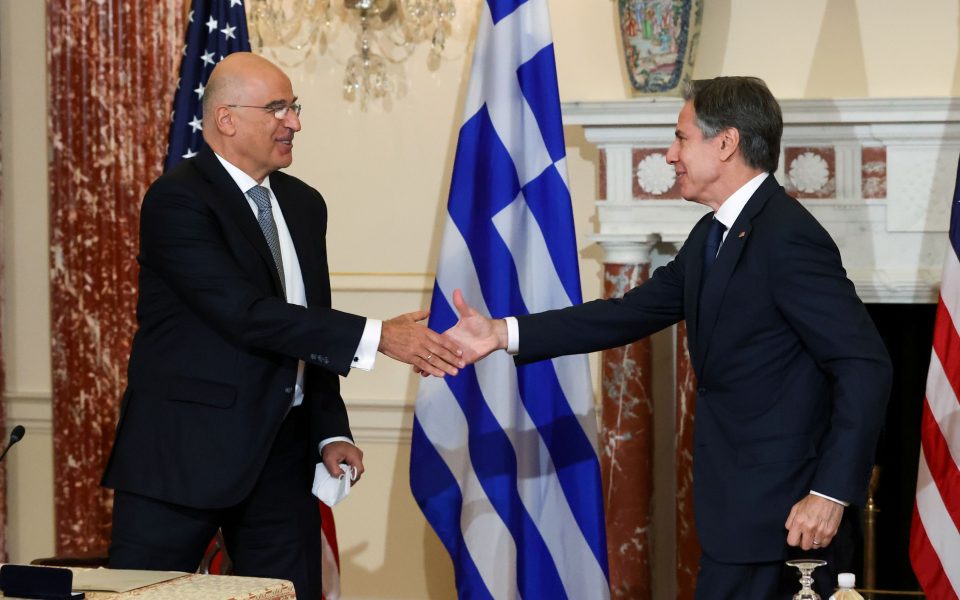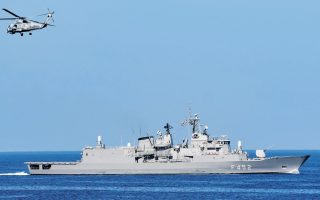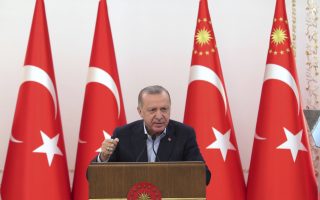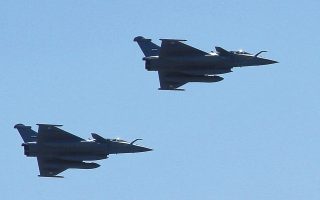Alliances are just part of strategy

The signing of the five-year Mutual Defense Cooperation Agreement between the United States and Greece in Washington Thursday further strengthens the bond between Greece and its strongest ally on a bilateral basis and within NATO. A few days after Parliament ratified the Franco-Greek defense agreement – and with cooperation developing with Egypt, the United Arab Emirates, Israel and others – Greece is creating a network of alliances that strengthen it in NATO, in the EU and in the region. Ankara has every reason to be angry. The Greek side, though, has no reason to rest. Alliances fortify us, they strengthen our diplomatic position, they do not make us invincible.
NATO’s Article 5, which states that an attack on one member is considered an attack on all, points out that each member, “individually and in concert with the other Parties, [takes] such action as it deems necessary, including the use of armed force, to restore and maintain the security of the North Atlantic area.” Furthermore, the Franco-Greek agreement notes that “the members have primary responsibility for their defense and security.” It notes that whereas NATO “remains the foundation of their collective defense, they express the common will to further strengthen the EU’s Common Security and Defense Policy.” In other words, despite collective and bilateral commitments, each country must be ready to defend itself, as its partners will judge how they will react at the moment of crisis. In 2015 we saw NATO’s “safety valve” in practice. When Turkey shot down a Russian bomber in the Turkish-Syrian border area, provoking a crisis with Moscow, the allies did not rush automatically into a confrontation with Russia, obviously judging the “use of armed force” unnecessary in this case.
Erdogan has not forgotten this. After the failed coup attempt of 2016, this prompted him to turn toward close cooperation with Russia, continually challenging NATO’s limits while claiming to care about the alliance (as his defense minister did yesterday, in a thinly veiled attack on France and Greece).
As the situation worsens on his domestic and foreign fronts, Erdogan is investing more heavily in nationalism. As long as Greece acts strategically and calmly, fortifying itself and avoiding his efforts to alienate it from its EU and NATO partners, he will grow increasingly agitated and be forced to seek success elsewhere.





